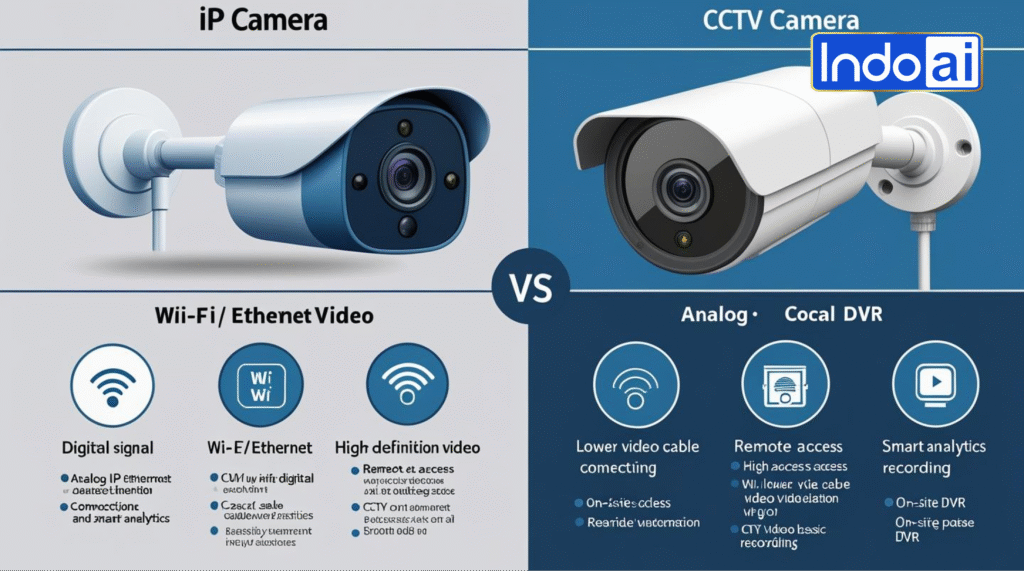What is the difference between an IP Camera and a CCTV Camera?
IP cameras and CCTV cameras (Closed-Circuit Television cameras) are two different types of surveillance cameras, each with its own set of characteristics and advantages. Here’s a comparison between the two:

1. Camera Technology:
- IP Camera (Internet Protocol Camera): IP cameras are digital cameras that use the internet or a local network to transmit video data. They capture video in digital format and can send it directly over an IP network, such as Ethernet or Wi-Fi. IP cameras often provide higher-resolution video and more advanced features like remote access, analytics, and integration with other networked devices.
- CCTV Camera (Analog Camera): CCTV cameras, on the other hand, are analog cameras that capture video in analog format. They require a physical cable connection (typically coaxial cable) to a recording device, such as a DVR (Digital Video Recorder). CCTV cameras have been used for many years and are often associated with older surveillance systems.
2. Video Quality:
- IP Camera: IP cameras generally offer higher video quality compared to analog CCTV cameras. They can support high-definition (HD) and even ultra-high-definition (4K) video resolutions, providing clearer and more detailed images.
- CCTV Camera: CCTV cameras typically provide lower video quality, especially when compared to modern IP cameras. They often have lower resolutions and may not capture as much detail.
3. Scalability:
- IP Camera: IP camera systems are more scalable. You can easily add or remove cameras from an IP camera network, and the flexibility of IP technology allows for more straightforward expansion of the system.
- CCTV Camera: Expanding a CCTV camera system can be more challenging and may require additional equipment and cabling. Adding more cameras often means more DVRs and cables, which can be less cost-effective and harder to manage.
4. Network Connectivity:
- IP Camera: IP cameras are designed to work on IP networks, making them easier to integrate into existing network infrastructure. They can be accessed remotely over the internet, which provides flexibility for monitoring and management.
- CCTV Camera: CCTV cameras are designed for closed-circuit systems and may not have built-in network connectivity. Accessing CCTV camera footage remotely can be more complex and may require additional equipment.
5. Features and Functionality:
- IP Camera: IP cameras often come with advanced features like motion detection, night vision, two-way audio, and video analytics. They can integrate with other smart devices and software for more comprehensive security solutions.
- CCTV Camera: While some advanced features are available for CCTV systems, they generally have fewer capabilities compared to IP cameras.
6. Cost:
- IP Camera: IP cameras tend to be more expensive upfront, especially for higher-quality models. However, the total cost of ownership can be competitive due to their scalability and advanced features.
- CCTV Camera: CCTV cameras are typically less expensive upfront but may incur higher installation and maintenance costs, especially for larger systems.
In summary, the choice between IP cameras and CCTV cameras depends on your specific surveillance needs, budget, and existing infrastructure. IP cameras are the more modern and versatile option, offering higher video quality, scalability, and advanced features. However, CCTV cameras may still be suitable for certain applications or legacy systems where upgrading to IP technology is not feasible.